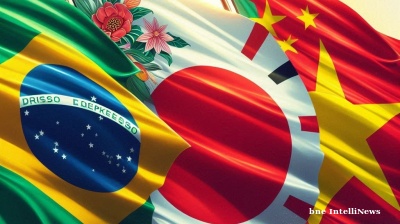India doesn’t produce much that other countries want to buy, but as the largest democracy in the world, one of its best exports is its elections expertise. Over 100 countries have sought India’s assistance in conducting elections, making it a leading global authority on how to do this successfully.
“Since 1952, India's Election Commission has organised the world's largest democratic elections,” Shashank Mattoo, an Indian commentator, said in a thread on X. “That record has made it one of the world's most experienced election managers.”
India’s contribution to global elections is multifaceted. “There’s two ways India does this,” Mattoo explained. “First, India's Election Commission trains election officials from around the world. Since 2011, 70,000 election officials from 109 countries have been trained by India. A large section of these officials come from African nations.”
In addition to training, India provides technical support, including Electronic Voting Machines (EVMs) and election ink. “India’s Election Commission provides technical support to help countries with their elections. The first are its electronic voting machines, which India started using in 2001,” Mattoo noted. “India's second export is its iconic election ink. This ink was first used in the 1962 Indian elections to prevent voter fraud. Mysore Paints and Varnish Ltd is the only company allowed to make this ink. 30+ countries – including Mongolia, South Africa and Malaysia – use MPVL's ink.”
India’s election assistance is a significant element of its foreign policy. “India helped Afghanistan’s transition to democracy after the fall of the Taliban. It constructed the Afghan Parliament building and provided election assistance and training. India also assisted Nepal conduct elections after the country transitioned from a monarchy to a democracy. After Myanmar ended military rule, India helped conduct democratic elections there in 2015. In 2019, Sri Lanka asked for India’s help in introducing EVMs.”
Despite its extensive involvement, India maintains a cautious approach. “India is also careful about this,” Mattoo remarked. “India doesn't want to be attacked for exporting its political model abroad. It also wants to avoid accusations of political interference. This is important in India’s neighbourhood, where countries can be suspicious of India's influence,” Mattoo said.
But India offers its assistance only when specifically invited by another country. “India’s model is more 'democracy assistance' compared to America's 'democracy promotion,'” Mattoo concluded.
Features

COMMENT: EU’s foreign policy chief Kallas’ releases a white paper on European Defence sector plans
EU foreign policy chief and former Estonian Prime Minister Kaja Kallas recently unveiled a controversial White Paper on the “Future of European Defence: Readiness 2030”, but it received a very mixed reception from EU member states.

EU-Central Asia: Preparing for first-of-its-kind summit aimed at bolstering trade
Caution evident in build-up to gathering.

INTERVIEW: "It's risky to invest in Ukraine now. But it's more risky not to invest" – AmCham Ukraine
An interview with the president of the American Chamber of Commerce in Ukraine

Russian household well-being reaches highest level in a decade – BOFIT
The well-being of Russian households has reached its highest level in a decade, a survey carried out by the Bank of Finland institute for Emerging Economies (BOFIT) found.




